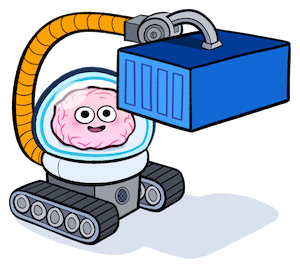Overview
Container Use works with any coding agent that supports the Model Context Protocol (MCP). This page provides comprehensive setup guides for all supported agents.All agents use the same MCP server command:
cu stdioClaude Code
Install Claude Code
Add MCP Configuration
Add Agent Rules (Optional)
Save the CLAUDE.md file at the root of your repository:Trust Only Container Use Tools (Optional)
For maximum security, restrict Claude Code to only use Container Use tools:Learn more: Claude Code MCP
Documentation
Amazon Q Developer
Add MCP Configuration
Add this configuration to~/.aws/amazonq/mcp.json:
Add Agent Rules
Save agent instructions to your project root:Trust Only Container Use Tools (Optional)
Video Tutorial
Watch the Amazon Q Developer setup walkthrough
Cursor
Install MCP Server
Use the one-click deeplink to install (requires Cursor and Container Use already installed):Add Agent Rules
Add the rules file to your project or home directory:Learn more: Cursor MCP
Documentation
Windsurf
Install MCP Server
In~/.codeium/windsurf/mcp_config.json, add the following configuration:
Add Agent Rules
Add the rules file to your project or home directory:VSCode / GitHub Copilot
Configure MCP Server
Update your VSCode settings with:Add Copilot Instructions (Optional)
Video Tutorial
Watch the VSCode setup walkthrough
Learn more: VSCode
MCP | GitHub
Copilot
MCP
Zed
First add the agent rules file, either as.rules in the root of your project or as one of the other acceptable files/locations.
settings.json. Provide the absolute path to the cu executable:
Add Container Use Agent Profile (Optional)
To lock the Zed agent out of your host system, you can create a dedicated agent profile that only enables Container Use tools. Add this to yoursettings.json under the agent section:
OpenCode
Configure the Container Use MCP server in aopencode.json file.
Note: Provide the absolute path to your systems cu executable:
AGENTS.md file using this command (this is optional but usually provides the best results):
opencode and dispatch your agents to complete your tasks!
Goose
Method 1: Configuration File
Add to~/.config/goose/config.yaml:
Method 2: Interactive Setup
cu stdio as the command.
Method 3: Goose Desktop
Paste this URL into your browser:Learn more: Goose MCP
Extensions
Cline
Add MCP Configuration
Add to your Cline MCP server configuration JSON:Add Agent Rules
Learn more: Cline Documentation
Qodo Gen
Setup Steps
- Open Qodo Gen chat panel in VSCode or IntelliJ
- Click “Connect more tools”
- Click ”+ Add new MCP”
- Add this configuration:
Learn more: Qodo Gen MCP
Documentation
Kilo Code
Add MCP Configuration
Add at global or project level:Kilo Code allows setting MCP servers at the global or project level. Learn
more: Kilo Code MCP
Documentation
OpenAI Codex
Add MCP Configuration
Add to~/.codex/config.toml:
Learn more: OpenAI Codex
Documentation
Warp
Add MCP Configuration
In the Warp sidebar, under Personal → MCP Servers → New:Warp 2.0 introduces coding agents with MCP support.
Gemini CLI
Add MCP Configuration
Add to~/.gemini/settings.json or .gemini/settings.json:
Learn more: Gemini CLI
Configuration
Verification
After setting up your agent, verify Container Use is working:- Check MCP Connection: Your agent should recognize Container Use tools
- Test Environment Creation: Ask your agent to create a new environment
- Verify Isolation: Multiple environments should work independently
Troubleshooting
Agent doesn't recognize Container Use
Agent doesn't recognize Container Use
- Verify the
cucommand is in your PATH:which cu - Check MCP configuration syntax
- Restart your agent after configuration changes
Permission errors
Permission errors
- Ensure Docker is running and accessible - Check file permissions for
configuration files - Verify
cu stdiocommand works:echo '{}' | cu stdio
Tools not appearing
Tools not appearing
- Some agents require explicit tool trust/approval
- Check your agent’s MCP server logs
- Verify Container Use tools are enabled in agent settings
